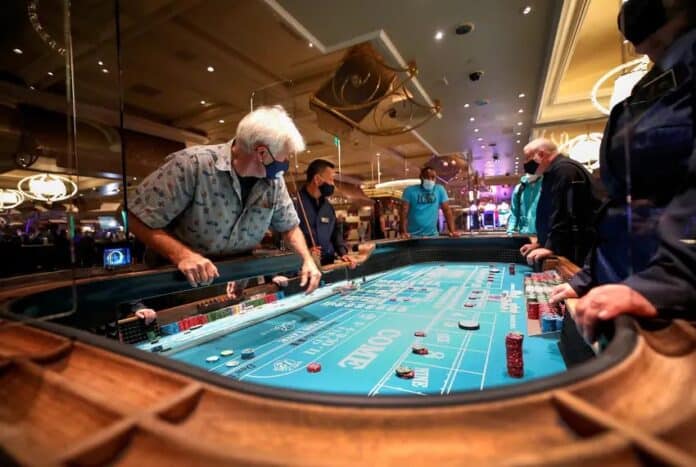By Bob Sechler, Austin American-Statesman
A push by Las Vegas Sands to legalize casinos in Texas is moving forward, despite odds of success that appeared to get significantly longer recently when Lt. Gov. Dan Patrick reiterated his opposition to loosening the state’s gambling restrictions.
Las Vegas Sands, the Nevada company founded by the late Sheldon Adelson, views Texas as a huge untapped casino market, with the potential to support major casino-based “destination resorts” in four top metropolitan areas, including Austin, as well as smaller regional facilities around the state, according to Andy Abboud, a Las Vegas Sands senior vice president.
The company’s casinos — which incorporate hotels, restaurants, spas and nongambling entertainment venues — require investments of $2 billion to $3 billion each and directly employ up to 10,000 people, and “we’re never going to ask for one tax incentive,” Abboud said Thursday.
For subscribers: On Gov. Abbott’s top legislative priorities, 1 has broad support, 4 not so much
Speaking to reporters in Austin in the wake of Patrick’s comments Tuesday to the host of a Lubbock radio show, Abboud said Las Vegas Sands is continuing its effort to form a coalition of like-minded gaming companies, gambling interests, sports teams and citizens to lobby the Legislature.
The coalition is expected to be announced soon, he said, along with the introduction of legislation that would allow Texans to vote on whether to legalize casinos and potentially other forms of gambling by amending the state’s constitution.
But Patrick, a Republican, has already doused some hopes that lawmakers might approve such legislation this session. Patrick said in his radio interview with Chad Hasty on KFYO in Lubbock that he’s “never been in favor” of expanded gambling in the state, and he noted that “we are nowhere close to having the votes for it” anyway in the Republican-controlled Texas Senate.
His stance is in keeping with the state GOP’s official party platform, which cites the party’s opposition to “the expansion of legalized gambling” and calls for “a veto of any
budget that relies on expansion of legalized gambling as a method of finance.”
Still, Abboud said he thinks the coalition of casino and gambling supporters will be able to win enough support from lawmakers by the time the current legislative session ends in May to get the issue in front of voters.
His optimism might not be groundless. At least one high-profile Republican – Gov. Greg Abbott – hasn’t shut the door on the issue, telling the Texas Tribune in a recent interview that he wants “to hear where the members (of the Legislature) are on this” and what their constituents are saying about it.
Politics: Don’t bet on gambling, gaming in Texas anytime soon, Lt. Gov. Patrick says
“We know that it is going to be a challenge in the Legislature,” Abboud said Thursday. But “we think that over the course of time, if we do our job, we can convince legislators to put this on the ballot. We really have just taken the field – it’s the very beginning.”
If the issue is put to voters, Abboud said he’s convinced it will win because the company’s polling shows that 65% of Texans support legalized casinos and 90% want to vote on it.
Abboud called the potential Texas market huge, estimating that it could generate $8 billion to $10 billion in gross gaming revenue annually when completely built out, while supporting 60,000 to 80,000 direct jobs and fueling “billions of dollars in tax revenue.”
Four Texas metro areas – Austin, Dallas-Fort Worth, Houston and San Antonio – are ripe for the “destination resort” casino model that Las Vegas Sands has pioneered, he said.
For subscribers: To address ‘overwhelming’ problem of climate change, Texas House Democrats form new caucus
The company’s own efforts will likely be concentrated on the Dallas area first if casinos are legalized in the state, however, “because that is where the greatest bleed of (gambling) money is across the Oklahoma border,” he said.
Overall, he called it inevitable that casinos eventually will be legalized in Texas, given the potential size of the market and what he views as strong support from voters.
“Does it happen this session? We will see,” Abboud said.




